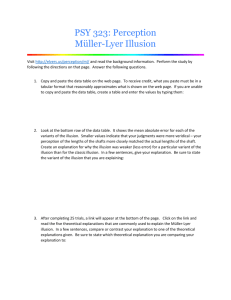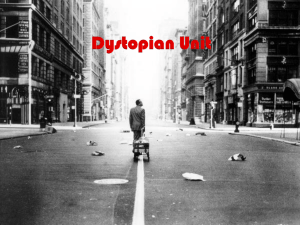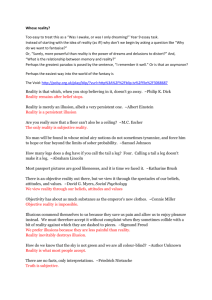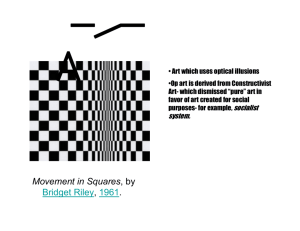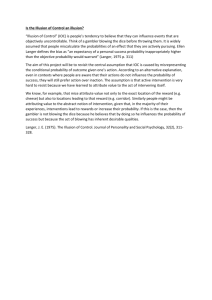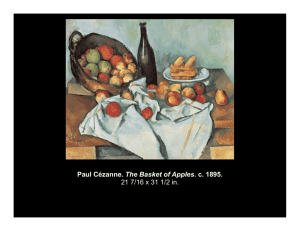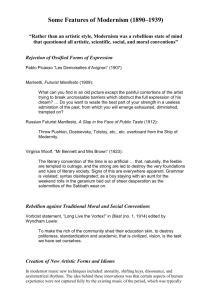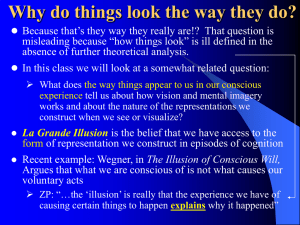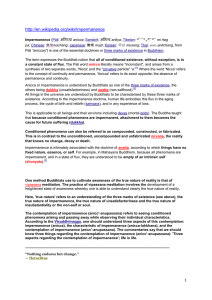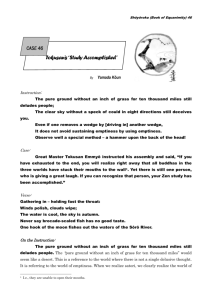Class 2 review: The Three Marks
advertisement
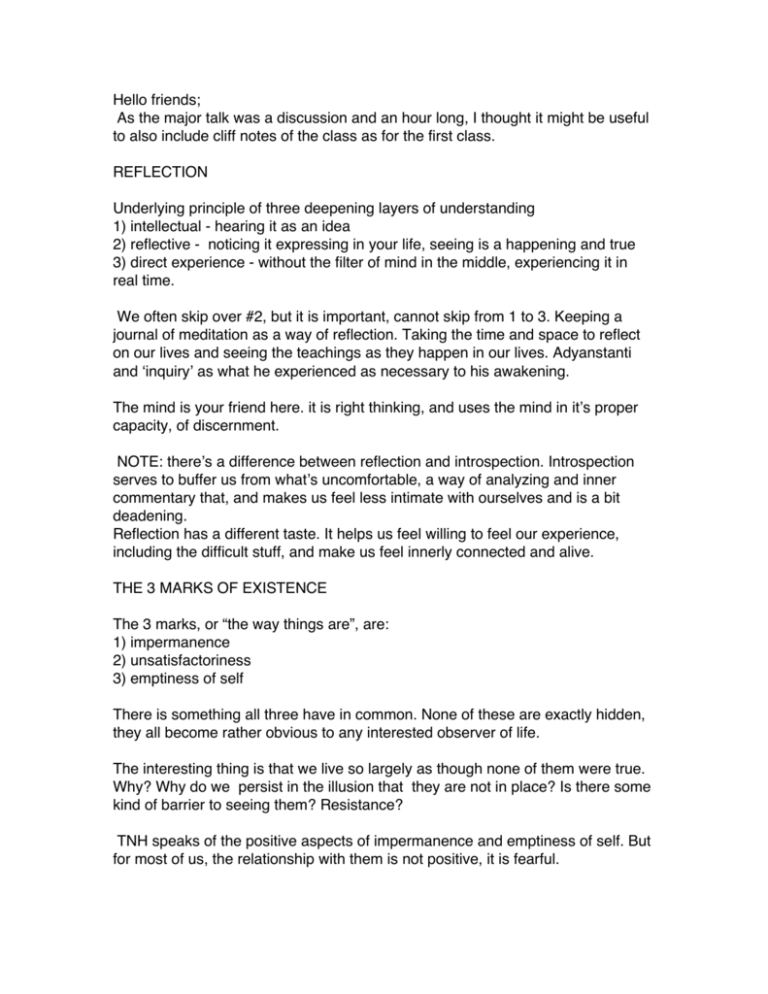
Hello friends; As the major talk was a discussion and an hour long, I thought it might be useful to also include cliff notes of the class as for the first class. REFLECTION Underlying principle of three deepening layers of understanding 1) intellectual - hearing it as an idea 2) reflective - noticing it expressing in your life, seeing is a happening and true 3) direct experience - without the filter of mind in the middle, experiencing it in real time. We often skip over #2, but it is important, cannot skip from 1 to 3. Keeping a journal of meditation as a way of reflection. Taking the time and space to reflect on our lives and seeing the teachings as they happen in our lives. Adyanstanti and ‘inquiry’ as what he experienced as necessary to his awakening. The mind is your friend here. it is right thinking, and uses the mind in it’s proper capacity, of discernment. NOTE: there’s a difference between reflection and introspection. Introspection serves to buffer us from what’s uncomfortable, a way of analyzing and inner commentary that, and makes us feel less intimate with ourselves and is a bit deadening. Reflection has a different taste. It helps us feel willing to feel our experience, including the difficult stuff, and make us feel innerly connected and alive. THE 3 MARKS OF EXISTENCE The 3 marks, or “the way things are”, are: 1) impermanence 2) unsatisfactoriness 3) emptiness of self There is something all three have in common. None of these are exactly hidden, they all become rather obvious to any interested observer of life. The interesting thing is that we live so largely as though none of them were true. Why? Why do we persist in the illusion that they are not in place? Is there some kind of barrier to seeing them? Resistance? TNH speaks of the positive aspects of impermanence and emptiness of self. But for most of us, the relationship with them is not positive, it is fearful. IMPERMANENCE Why do we exist as though this does not occur? We tend to take everything in our lives as for granted and as thought they should always be there, and are surprised and unprepared when they change. examples: jobs end, our computer breaks down, groups and friendships come and go, we age and our body changes. some barriers: 1) The mind only sees the grosser increments of change. The paint is constantly getting dingier, watching a sunrise where we cannot see these changes from moment to moment, can only see the changes after periods of time. The mind cannot pick up on the tiny changes that are happening as a constant flow, only the larger outcomes. 2) The animal body likes stasis, for things to be predictable and the same. Stress caused by changes in where we live, jobs, etc. There’s large survival value here. The body worries, what will happen when things change, will I be safe? 3) We cling to our perceptions as unchangeable. Perhaps we have a negative first impression of someone or something, and then we want to see that person in that same light each time we encounter them. Again, large survival value here, it’s not the enemy, but it does close us off from encountering life fresh each moment. Why? Our perceptions give us the illusion of controlling expectations, of ‘knowing’ and being in control. UNSATISFACTORINESS the “if only” of life, the desire for the world to go “our way”. It reflects the constant drive to make things ‘our’ way. There’s survival value here also, it is benign to clean the house, take care of things skillfully, and so forth to make our lives smoother and better quality. There is nothing wrong with things going our way, even necessary. The difficulty arises with our expectation of having it ‘go our way’. The barrier is coming to grips with the reality that having it go our way does not bring lasting happiness and fulfillment. It is only by being present, fully present with ‘what is’, that can do that, brings us to center, and it a process, not a destination. It is frightening because it points to the truth that what we ultimately are seeking for is beyond the power and agency of ‘me’. And there is a price to seeing these marks clearly. The price is the willingness to open to the fear that caused the ego, ‘me’, to form in the first place. EMPTINESS OF SELF TNH: emptiness means no separate existence. Wave and water analogy, of inter being. We are made up of elements that don’t seem like ‘me’ . We can only exist as a expression of the ground of everything that is, not alone. Why do we live with the delusion of a solid, constant ‘me’? Close observation leads us to see that we are fragmented. Each thought, idea, impulse puts the word “I” to it, yet each “I” may be unrelated or opposite to the ”I” that comes before and after it. Why is it so hard to self improve? Because there is no solid core in the center that is always directing action. Why do we do behaviors that are not in our own self interest? It is obvious when we self observe that we are not unified and change from moment to moment. If it were not so, there would be ONE self help book and we’d all read it and live happily ever after. Anyone serious about change knows it is helpful to seek outside structure and support, because the inner forces are not unified. example: AA, meditation group, school, taking lessons in something to help us practice and stick with it. So this is not hidden from us, yet we act as though there are no barriers and we ‘should’ be able to do things without denying forces. We beat ourselves up over and over because our actual experience of ourselves falls short from the expectations we have from the illusion of the solid, ongoing, permanent ‘me’. is this a definition of insanity? The illusion of a separate, permanent self does not equal the actual experience of self. But rather than see the obvious reality, we persist in the expectations of the illusion. So we suffer, feel self hatred. We do not suffer from who we are - we suffer from our unwillingness to give up this illusion. Why? Why do we hold on at such great cost? Letting go = ceding to something that is bigger than the grasp of the ego, the personality - and all that means. Looking to something bigger to take us home, as Rumi says. Will it be there? Will it be safe? Will something take care of me if “I” am not making sure? Homework: Reflect on these three marks, and also on how our resistance to them manifests in day to day life. examples: looking at expectations fulfillment: of future events, both positive and negative. seeing stress: getting the task list done seeing impermanence: in resistance when things break, change, or vary from the plan self expectations: I WILL do this.
